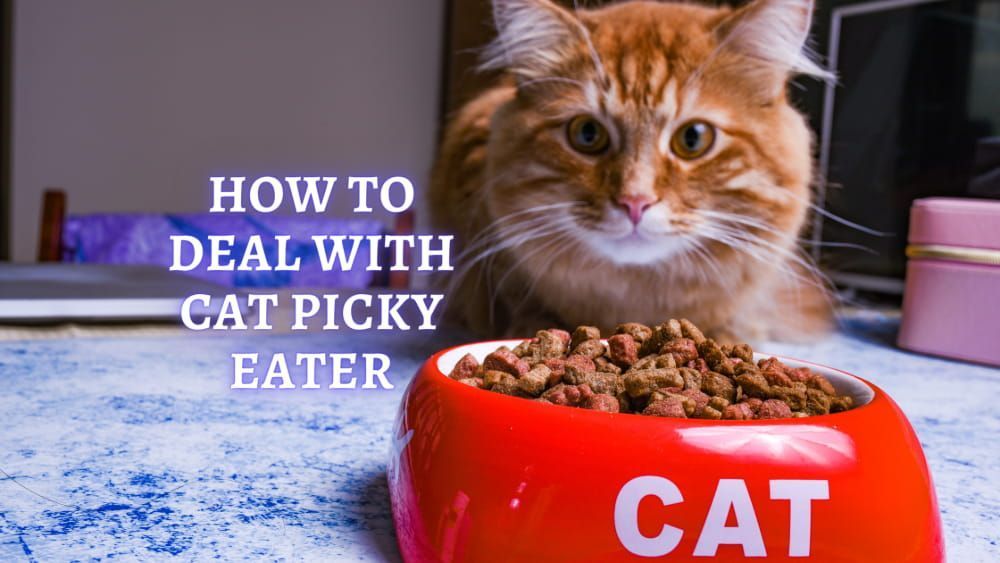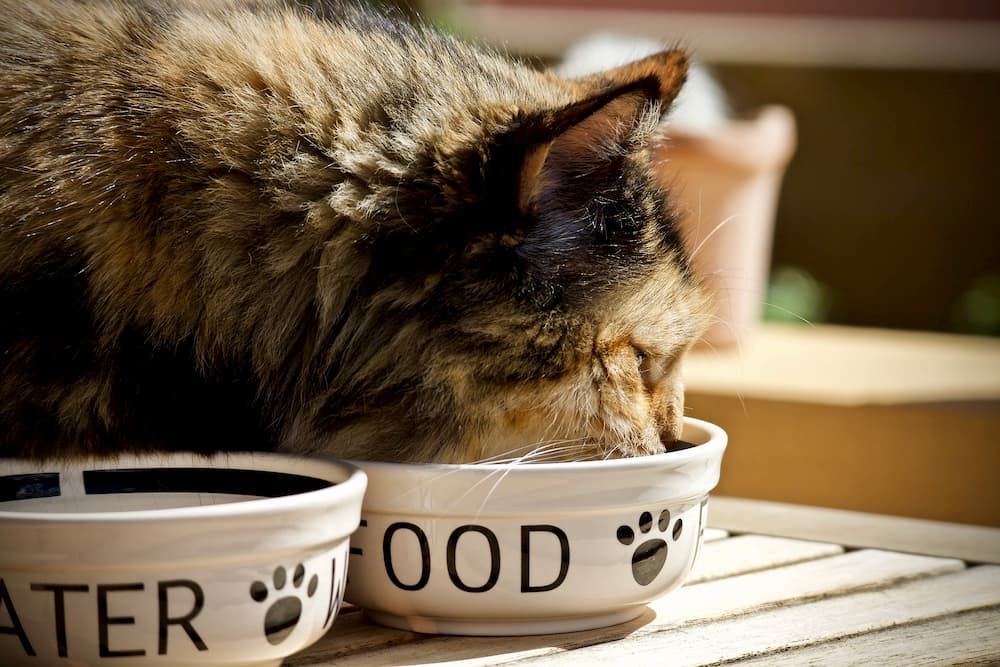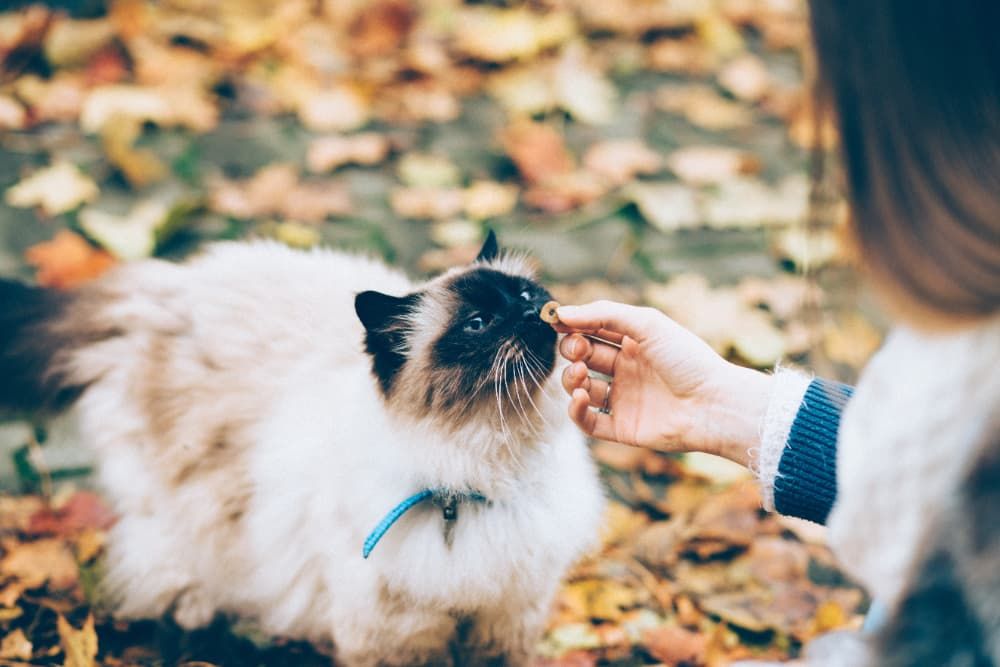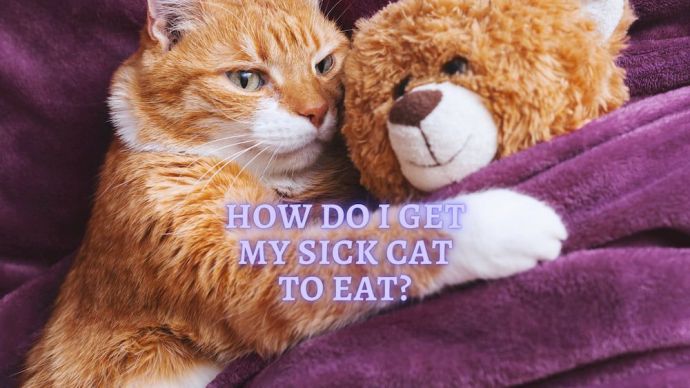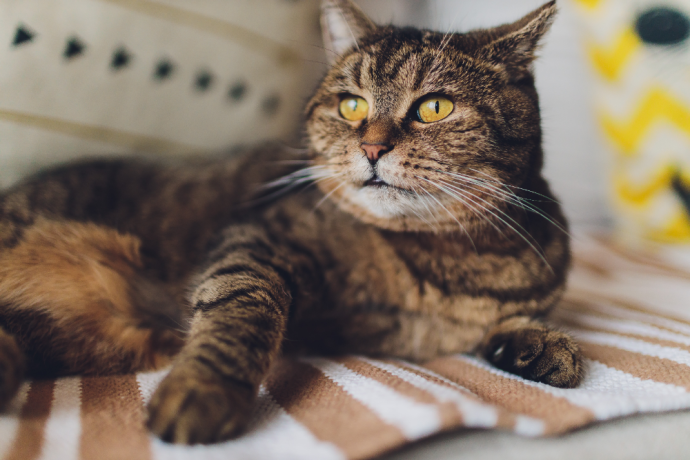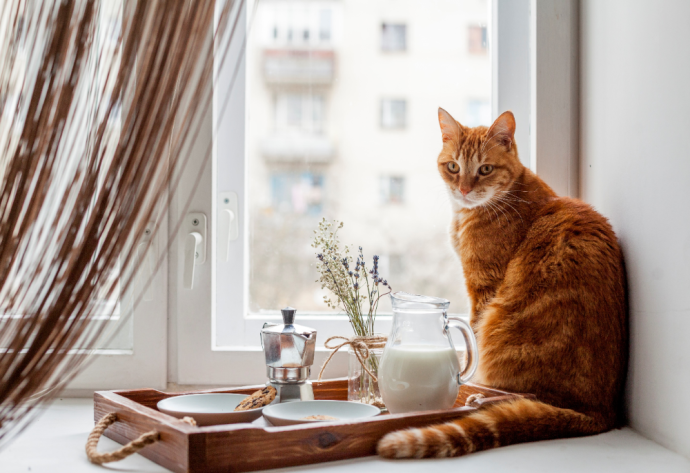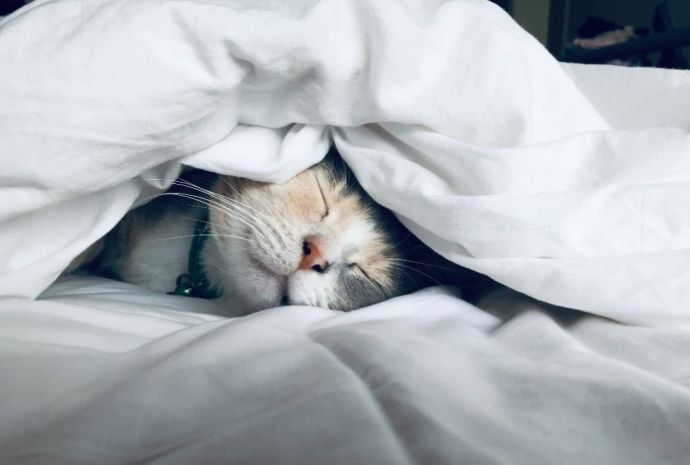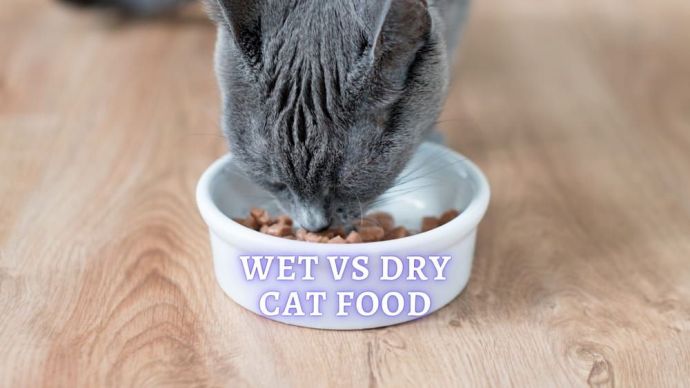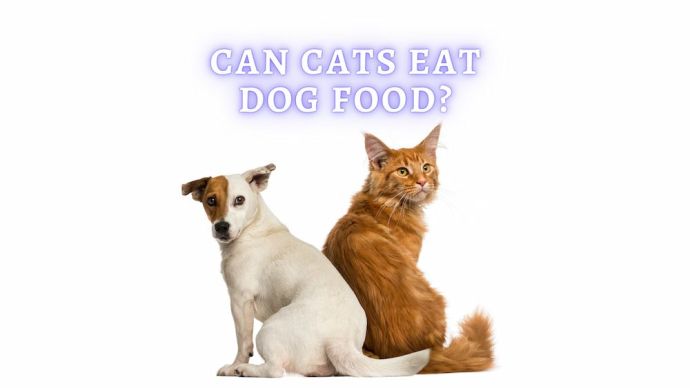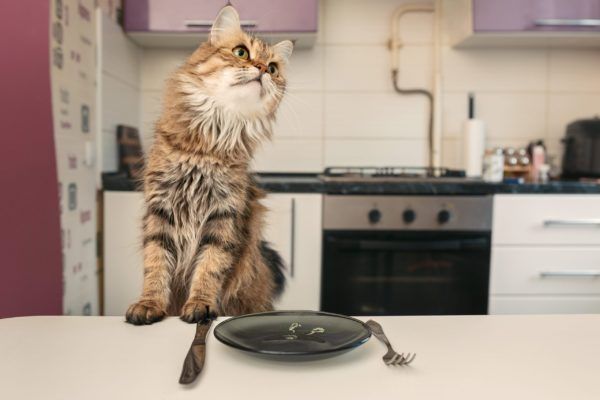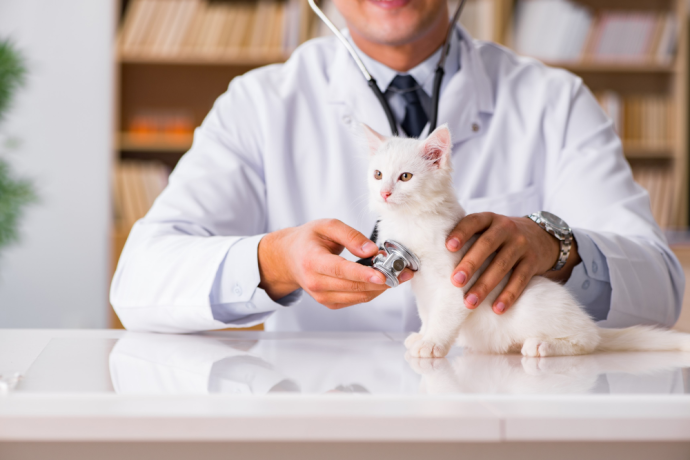How to Deal With Cat Picky Eater?
Written by:
Author: Vicki Smirnova
Vicki Smirnova is a professional writer and editor who adores animals and helps readers get along well with their pets. She has been working in digital media for more than 5 years and has great experience writing content about lifestyle, including pets. Vicki specializes in dog health and nutrition, cat feeding, dog training. She is an aquarium lover and is passionate to write about fish care at home. Also, Vicki headed several websites and worked as a news editor.
View all 244 articlesLearn about our editorial process and veterinary review board.
Reviewed by:
Veterinary review
by Dr. Sara Ochoa
Dr. Sara Redding Ochoa is a veterinarian with many years of experience and higher education. During her time in veterinary school she was able to learn form some of the most well-known veterinarians from all over the world. Sara lives happily with her husband Greg and her babies Ruby the schnoodle, and Bam-Bam her bunny. Dr. Sara Redding Ochoa has a passion and love for animals that makes her a wonderful asset to our team.
View all 13 articlesLearn about our veterinary review board
Viewed: 220
Updated on: 01/10/2023
Why does a cat refuse food that they usually eat with great pleasure? Many owners have faced a situation where their cat refuses to eat food. Were they sick? This also happens when your furry friend is absolutely healthy.
Due to the peculiarities of the psyche, a cat perceives the world differently from a human. For example, if we are forced to eat the same thing every day, we will quickly get tired of eating the exact same thing every day. Your pet will happily eat the same foods throughout life, provided that the food they eat meets its nutritional needs.
Cats could be better at discerning tastes. For example, in evolution, they have lost the receptors that distinguish sweet taste [2] but simultaneously experience absolute pleasure from fatty foods. Simply put, fat plays the same role for them as sweets and desserts do for us.
READ MORE: Best Wet Cat Foods in 2021
Reasons for the pickiness in food
If your cat is picky about food, don’t worry. These creatures have a reputation for being too picky about what they eat. Unlike many other animals, they are very fussy eaters. Biologists even use such a term as “neophobia”, fear of the new. So, if you recently changed the brand or its variety, most likely, the refusal to eat is associated with this reason.
Your cat eats slow
It may turn out that a cat is actually just stalling for time. Many of these cute animals start eating slowly and prefer small portions for a long time. If a cat doesn’t eat all the food in the bowl right away, it doesn’t mean it doesn’t like it.
Your cat does not like its bowl
It also may be that you think your cat is picky, but he has no complaints about the food, but the bowl causes discomfort. There may be several reasons for this.
The bowl may be too deep or too shallow, it may not be clean enough, or it may be made of a porous material that has absorbed the aromas of the last dinner or some completely foreign odors. Some materials react with certain substances in a chemical reaction that causes an unpleasant taste.
For example, certain types of medicinal food become bitter in metal dishes. And some materials are unpleasant. Besides, the bowl can be uncomfortable if whiskers touch its walls when eating, and since cat whiskers are very sensitive, this can irritate the purr.
So, if you suspect this, try replacing the bowl with a wider and smaller one.
READ MORE: Why Doesn’t My Cat Purr? (Vet Approved Advice)
Your cat has other sources of food
Your cat may refuse to feed when it has other sources. If you give too many treats from the table, you’d better stop doing it. Your cat will be unhappy with these changes for a while, but eventually, it will realize that the only thing it can count on is the food in its bowl.
Make sure no one else feeds your cat – not your family or neighbors. Only one person should feed the animal.
If you have allowed your kitten to choose the food they like best by giving them a few to try, then over time, when they grow up, you may find that your pet has decided that this will always be the case. If you open many cans of canned type to persuade your cat to eat at least some of it, then you should know she did train you.
READ MORE: Wet vs Dry Cat Food
You have changed your cat’s environment
Refusal to eat can also be caused by a sudden change in the usual environment (moving to a new apartment, being forced to find a cat with one of the relatives, etc.). These creatures are nervous, looking for something in the corners. It would help if you calmed the animal, pushed it to the bowl, moistened the muzzle with water, or gave it a sniff of food. This behavior usually lasts no more than 2 days without other symptoms.
If your pet stops eating at all or starts eating smaller amounts of food, this may be a cause for concern. To correctly assess a cat’s condition and, if necessary, help, it is essential to know why your pet refuses to eat.
READ MORE: How to tell if my cat is sick?
Possible health problems
If your cat suddenly becomes very picky with their food, which has not been observed before, or you think she is losing weight, you should consult a veterinarian. Sometimes your pet being a fussy eater can be caused by medical conditions, such as dental disease, digestive disorders, or the formation of lumps of hair in the gastrointestinal tract.
If your cat does not eat because they are sick, this is not strange, but your furry friend can refuse the offered treats and be completely healthy. Perhaps this way, the pet shows a protest, or he does not like the quality, or the food provided, so you need to analyze all the factors and determine why your cat refuses to eat.
If your cat is outside, it is possible that she is eating at someone else’s house or, following their natural instincts, has been out hunting birds and rodents, so it is reluctant to eat at home.
Middle-aged cats, especially those living in large cities, often suffer from improper behavior and tend to eat everything at once, stop eating for a while, or overeat.[1] It is your responsibility to prevent your cat from overeating by making sure that you are not over-feeding.
Sometimes your cat may skip a day between meals. There are many reasons for these behaviors such as:
- Temporary digestive problems especially if they shows excessive physical activity immediately after eating.
- The day before, your cat ate too much.
- Ate hard-to-digest or “heavy” food.
- Shows a protest and demands a favorite treat or, perhaps, is offended by one of the family members for not paying attention to their person.
- Fasting during the day should not cause concern, but you should not delay a visit to the veterinarian with a longer refusal to eat.
A cat can’t miss more than a day of eating without having health issues. Even fasting during this period may cause severe effects in the liver, especially in obese pets. This causes a medical condition called hepatic lipidosis or fatty degeneration of the liver. Therefore, even in weight loss, it is essential to exclude radical diets; the cat should eat regularly. With anorexia, these cute animals are force-fed.
How make a cat less obsessed with food?
There is an effective way to train your cat to eat only what you offer:
- Put the food you would like to feed in a bowl for half an hour.
- If she didn’t touch it, put it away.
- Repeat this for as long as she doesn’t start eating.
After a day or two, the cat may start demanding additional treats. Defy. Your pet isn’t starving; it’s just trying to get what it wants using all its charms. You may have to endure such complaints for a couple of weeks, but such measures will soon put an end to her pickiness.
If you decide to change the diet, you need to do it gradually. Start mixing small amounts of the new food with the old one, gradually increasing the new proportion until you completely transfer your cat to the new diet.
READ MORE: Cat Stomach Gurgling
FAQ
What do you do when your cat is a picky eater?
- Put the food you would like to feed the cat in a bowl for half an hour.
- If she didn’t touch it, put it away.
- Repeat this for as long as she doesn’t start eating.
Will a picky cat starve?
They will not deliberately starve themselves – they value their own health too much. And a starving animal will eat everything that is offered. If your cat refused to eat at all, starves for more than a day, it indicates serious health problems! Do not hesitate to go to the vet!
What is the best food for picky cats?
You can try out many types of food before choosing one that will appeal to your picky cat. As a rule, they prefer wet and the stronger the smell, the better. Look for a strong fish smelling wet or even try adding in some canned tuna to their diet.
Why is my cat such a fussy eater?
Your cat may be picky about food for several reasons. The cat may not like the change of diet or the bowl in which you pour food. They may also dislike the place where his bowl is placed. It may be that your pet receives treats from other family members and simply does not feel hungry.
How do I make my furry friend less obsessed with food?
If your cat has become picky about food, consider replacing the feed or changing the texture. You can also increase her calorie consumption by playing games. A cat that is not eating should be tried on any type of food to get them to eat. If your furry friend is not eating for more than one day, you need to visit a vet. They can examine them to see why they are not eating and start them on medication to help entice them to eat a little more.
READ MORE: Best Cat foods for Weight loss
Article Sources:
- Okin, Gregory. Environmental Impacts of Food Consumption by Dogs and Cats. 2 Aug. 2017, journals.plos.org/plosone/article.
- Li, Xia. Pseudogenization of a Sweet-Receptor Gene Accounts for Cats’ Indifference toward Sugar. 25 July 2005, journals.plos.org/plosgenetics/article.
 Cat Care Why Does My Cat Attack My Legs? 10 Reasons Why and What To Do About It (Vet-Approved Advice)
Cat Care Why Does My Cat Attack My Legs? 10 Reasons Why and What To Do About It (Vet-Approved Advice) - 46013
- 21
 Cat Veterinary Tips Cat Stomach Gurgling: Vet Advice on Why is Your Cat Stomach Gurgling?
Cat Veterinary Tips Cat Stomach Gurgling: Vet Advice on Why is Your Cat Stomach Gurgling? - 36469
- 4
 Cat Veterinary Tips My Cat Lost its Voice: Can Cats get Laryngitis? (Vet Advice)
Cat Veterinary Tips My Cat Lost its Voice: Can Cats get Laryngitis? (Vet Advice) - 23554
- 13









